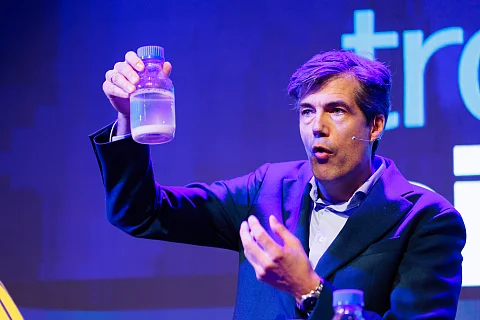Biobased Circular Takes Off
08-11-2024
The BioBased Circular growth fund program, which focuses on producing plastic from plant-based raw materials such as forestry and agricultural by-products, as well as wastewater, is just getting started but is off to a promising beginning. The Biobased Circular program received 338 million euros from the Growth Fund, and participating companies and organizations have committed an additional 550 million euros in investments to launch this green chemistry initiative.
For the first round of subsidies amounting to 10 million, thirty companies submitted a rough idea and eventually fourteen companies applied for a grant for a detailed project proposal. These projects cost more money than is available. “That’s why we decided to double the amount so that more projects can get started,” says director Herman Wories of BioBased Circular.
Success Stories
There are significant success stories in the biobased sector, both large and small. For example, Queen Maxima opened Avantium's factory in Delfzijl in mid-October. It is the first in Europe to produce 100 percent plant-based plastic: PEF. Clients like Coca-Cola, Louis Vuitton, Albert Heijn, and beer maker Carlsberg can replace their PET bottles with a sustainable alternative. However, it took twenty years before construction could begin. Many start-ups are not nearly at this stage. The Frisian company Paques Biomaterials opened its first demonstration factory in Dordrecht in May 2022. Using bacteria in wastewater, it produces 100 percent biodegradable bioplastic: PHA. “Next year, we will build our first installation at a paper factory,” said director Joost Paques during the conference.

Valley of Death
Many start-ups struggle to get through their initial growth phase and get stuck in the notorious ‘valley of death,’ according to research by TNO. Together with regional development companies, TNO counted 128 start-ups and scale-ups belonging to the green chemistry sector in the Netherlands. Of these, 22 participated in a study. On average, these companies take eight years to get past their initial growth stage. For this group of companies, the hurdle over the valley of death is even longer than in other sectors. Competition with fossil resources is lethal. “Our system is still 99 percent based on fossil resources. There are new companies trying to make it, but they falter in the valley of death,” says Lotte de Groen from TNO Vector. The TNO study shows that 86 percent of these companies have difficulty finding sufficient funding to build demonstration factories.
Existing Factories
The start-up Relement does not have this problem. This spin-off from TNO produces aromatics for paints from biomass, such as waste from sugar beets or cellulose from sawdust. These aromatics are used in coatings for steel bridges as well as wood varnish.

The great advantage is that Relement does not need to build its own factories, but has its products produced in existing factories. This was necessary as well. Because there is no regulation that mandates paint manufacturers to use biobased raw materials, it has been difficult to find investors for a dedicated factory, and large corporate paint producers preferred to wait. “We are the first in Europe to have a renewable alternative to aromatics. But as soon as customers hear the price, they say: first scale up, produce volumes, and lower your price. Then we are already ten times bankrupt,” says CCO and co-founder Monique Wekking. “Fortunately, we have family businesses in the Netherlands that are willing to invest in this.” As a result, Relement plans to launch its first biobased water-based coating next year.

